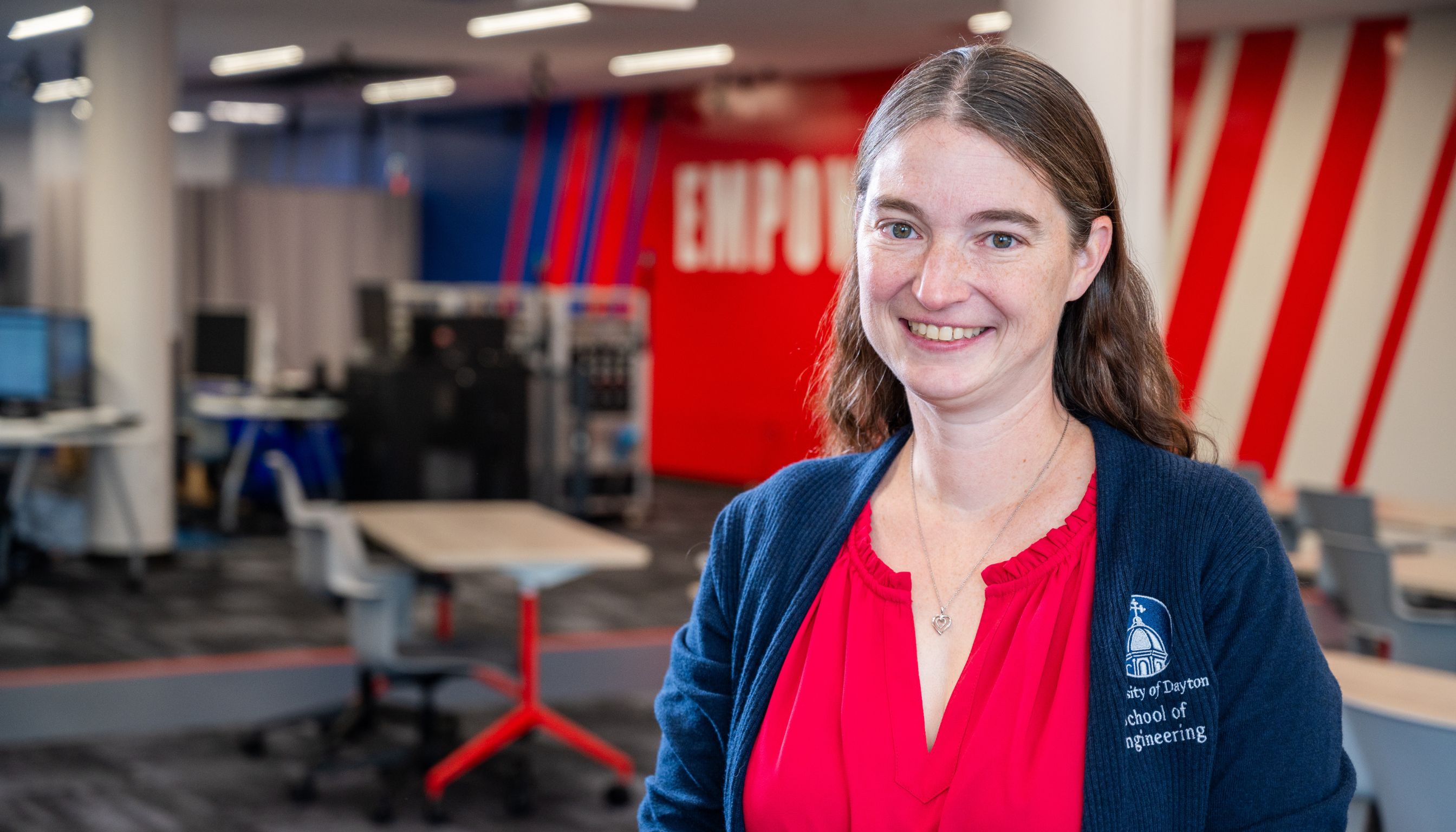Dayton Engineer

Department of Mechanical and Aerospace Engineering Professor Recognized as American Society of Biomechanics Fellow
By Keelin Kelly
Department of Mechanical and Aerospace Engineering Professor Kim Bigelow was awarded the status of Fellow in the American Society of Biomechanics (ASB). She will be recognized at the annual ASB conference in August.
Bigelow attended her first ASB conference in 2006 as a student and has increased her involvement in the organization every year since. In addition to acting as a mentor for conference attendees and emerging biomechanists, she has served on the executive board as the education chair and currently serves on an awards subcommittee.
“It’s a very supportive society. There are many mentorship opportunities, and I’ve been able to be involved in and give service to the society in many ways,” Bigelow said. “I was honored to be nominated as a fellow and receive that recognition, and it will provide even more of an opportunity to now give back in some more strategic ways.”
Bigelow knew she wanted to study biomechanics after designing prosthetic hands at a Michigan State University summer camp she attended as a high school student. She later decided to pursue a bachelor’s degree in engineering mechanics at Michigan State because it allowed her to specialize in biomechanics. While receiving her master’s degree and doctorate from Ohio State University, she worked for a biomechanics company until she was encouraged to apply for a teaching position at the University of Dayton.
“I enjoyed that work, but when I found out I could be a professor, that I could get my own research lab, teach students and conduct meaningful research, especially related to individuals with disabilities like I had originally planned, I was sold,” Bigelow said.
She is now in her 16th year at UD and directs the Engineering Wellness through Biomechanics Lab which focuses on postural control, fall prevention and assistive device design.
Bigelow is passionate about engaging undergraduate researchers and creating initiatives that allow students to take on leadership roles in the lab. One of her largest initiatives is her lab’s Adaptive Toy Making Day where students create adaptive toys for children with disabilities to donate to United Rehabilitation Services of Greater Dayton, which is focused on enhancing the physical, social, and emotional needs of children, adults and seniors with developmental or acquired disabilities.
“Because the experience of being an undergraduate researcher was so pivotal in my career development, I really wanted that to be a part of what I do here,” Bigelow said. “Students in the lab help with our data collections, run our equipment and analyze our data — all of the normal research things — but we also really try to focus on undergraduate research experience as an opportunity to develop a belonging to the field.”
Working with undergraduate students in her lab motivated Dr. Bigelow to form a group of colleagues from ASB that also engage in undergraduate research to assess the impact of these types of experiences. She has seen the impact that focusing on belonging has had on her students, as more and more of them are choosing to remain in the field and apply to Ph.D. programs.
“The hardest part about being a professor is when they graduate,” Bigelow said. “But it’s exciting to know that my colleagues out there all over the country are going to take care of my students in the same way they do their own and vice versa.”
